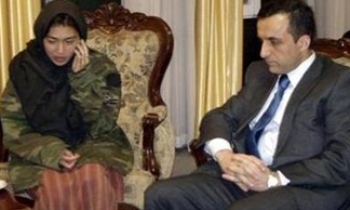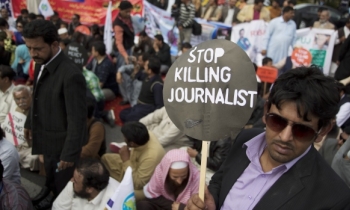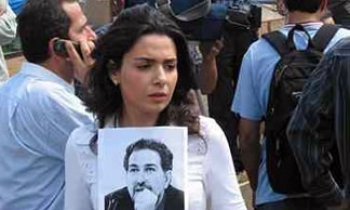SIXTY-FOUR years ago, the governments of Germany and Italy declared war on the United States. Congress replied in kind later that same afternoon. The government had been quietly preparing for modern war, but once it arrived few understood the demands it would make on American society.
At some point on that day, President Roosevelt told press adviser Stephen Early that the government needed to acquire one of the national radio networks. Now that America was at war, the government's requirement for unmediated and direct communication was essential. Early telephoned Federal Communications Commission chairman James L. Fly and ordered him to speak to David Sarnoff, NBC's chairman. Fly and Sarnoff were ''to work out, confidentially for the time being, ways and means by which the government can utilize the [NBC] Blue Network for the period of the war." Roosevelt, Early told Fly, suggested that the government could ''rent the Blue Network facilities for the duration of the war and for the use of such time as the government needs in order to disseminate its own information."
Ultimately, the government did not assume control over NBC Blue, or any other private commercial radio network, during the war. Fly convinced Early that the networks would work closely with the Office of War Information to ensure access to the airwaves.
Roosevelt's desire to control communication with the public is symbolic of a peculiarly American dilemma: how to speak directly to the American people in times of war, national emergency, and crisis. Journalists -- then as now -- interpret the government's actions and words. The American media system, in which the press receives constitutional protection and private, independent broadcasters operate as government licensees, was designed to create an unofficial auditing system for government communication. In 1941, America was singular in structuring its communications sphere in this manner; today, the majority of people in the world still live without an independent media.
Too often we in the United States forget the radical, even revolutionary implications of our media system. It trusts an essentially indefinable group of people (''the press") to serve the public interest by interposing itself between political authority and the citizenry. The concept of a government pledged to protect independent reporting on its own behavior remains subversive to most authorities around the globe.
The conversations held in Roosevelt's White House are clearly relevant to today's climate of press-government tension. Just as Roosevelt, in a 1942 fireside chat, inveighed against ''the typewriter strategists who expound their views in the press or on the radio," the Bush administration fumes over reporting it considers inaccurate, unrepresentative of reality, and antagonistic. The current administration continues to develop multiple strategies to connect directly with people -- whether in the United States, Iraq, or elsewhere. The recent furor over payments to Iraqi journalists in exchange for publication of US government-authorized news accounts attests to a level of desperation. This administration's recurrent attempts at direct communication demonstrate an intention to subvert the purpose of the First Amendment.
But the government is not acting in a vacuum. It is reacting to a media environment marked by enormous hostility. Skepticism is healthy, but too many journalists practice reporting informed by a pessimistic cynicism. This corrosive attitude is damaging the news industry; newspaper circulation and TV news viewership continue to decline.
The tension between the press and the government has hypertrophied to the point that neither is acting in the public interest. It is time for these two adversaries to discuss the patterns of behavior creating such rancor and frustration. Both sides must be willing to exchange and recognize legitimate criticism in an open forum. Grievances may not be easily resolved. But discussion in the spirit of inquiry rather than recrimination will initiate a more constuctive relationship.
This is not to say that the press must abandon the critical skepticism that informs its watchdog role; nor that the government should stop promoting efforts to reach citizens directly. But the mutual antagonism has confused and angered the public. It's a troubling situation, bad for both democratic governance and the news industry. But the real loser is the constituency that both claim to be serving: the American people.
Michael Socolow teaches journalism at the University of Maine.









